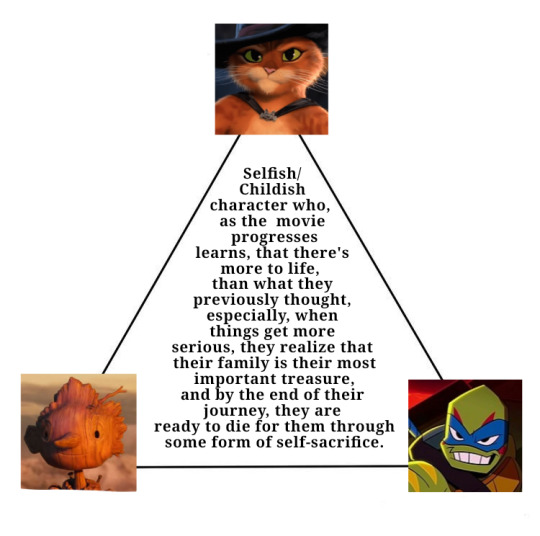#guillermo del toro's pinoccio spoilers
Text
I think I can see the pattern in 2022 animated films.

Also the amazing self-awareness of these movies, not caring about bending over to popular media demand and actually addressing heavy topics instead of censoring or down playing them. 👏
#puss in boots#puss in boots the last wish#puss in boots the last wish spoilers#tw spoilers#rottmnt#rottmnt movie spoilers#guillermo del toro#pinoccio#guillermo del toro's pinoccio spoilers#finally some worthy movies
11K notes
·
View notes
Text
I watched Del Toro's Pinnochio this weekend, and I'm thinking about its approach to rules and rule breaking.
Because it's not a clean cut, 'obedience bad/independent thinking good' thing you often see with USAmerican projects.
One of the first sequences in the film is of Pinocchio throwing around knives because he simply doesn't know better, and almost seriously hurts Gepetto (who is understandably freaking out about this whole situation). He is a danger to himself and everyone around him, and he needs guidance and instruction to keep safe.
The first time he skips school to go to the carnival, it's the same: he should have done what he was told because it was meant to protect him from people who wanted to exploit him.
The second time he went to the carnival, though, he did it knowingly. He did it with the understanding that he was going to disappoint and upset his father, but that doing so would save his father from financial ruin.
I don't count making fun of Mussolini as an effective act of rebellion, because he didn't understand what he was actually getting into with that act. It was as lightheartedly ignorant and deadly as juggling knives, and it had repercussions for the rest of the movie. (Absolutely do criticize and call out fascists and dictators, but for the love of all that is holy, know what you're getting into before you do.)
When he disobeyed effectively, it was always done out of kindness and love. And very rarely to people who 'deserved' it-- by which I mean, people who were kind to him or loved him back.
It was standing up to protect the jealous little monkey that bullied him. It was comforting (and fostering 'softness') in the boy who had tricked him into burning his feet off. It was smashing the hourglass for a man who had once called him a burden.
Those acts came with repercussions of their own, each one with a heavy price to pay. But each time that kindness was rewarded with other people reaching back to save him, too.
And there's something to be said about the way it portrayed obedience: how often people obeyed cruel orders out of fear of pain or death, how often they obeyed awful orders in a desperate bid to earn some of the love and acceptance that they've been starved for (the monkey and Candlewick especially here).
And how there's a difference between Candlewick and his father, between the monkey and Volpe. And that difference matters. Just like the difference between juggling knives and smashing the hourglass.
It's that understanding that there are differences between these situations and people, and you have to examine each of them carefully before you can make any kind of sweeping proclamations.
It's nuance.
#guillermo del toro's pinocchio#spoilers for pinoccio#amazingly a man who has spent a good deal of his life thinking hard about fascism is able to express it in a nuanced way you children#honestly the bigger shock to me was that he managed to keep that pg rating#*to children
151 notes
·
View notes